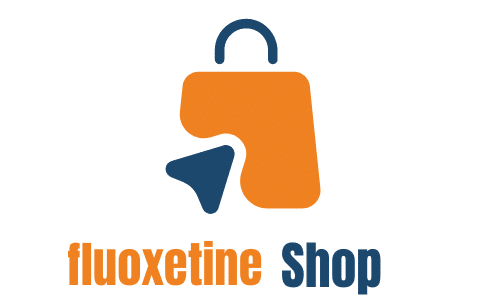What Are the Essential Considerations for a Pet’s Nutritional Needs During Recovery from Surgery?

When your beloved dog is recovering from surgery, you’re naturally eager to do everything you can to help him. All dog owners know that the recovery period is critical for a pet’s return to health and normal life. But there’s one aspect of recovery that can sometimes be overlooked: nutrition.
A pet’s diet plays a fundamental role in their recovery. Proper nutrition can speed up the healing process and prevent complications. So, let’s dive into the essential considerations for a pet’s nutritional needs during recovery from surgery.
Also read : How to Safely Adapt Your Pet to Life in a High-Rise Apartment?
Understanding the Importance of Nutrition in Post-Surgery Care for Dogs
When your pet is healing from surgery, their body will need energy and resources to repair tissues and fight off potential infections. This energy comes from the food they eat. A balanced and nutrient-rich diet will help in this process, boosting your pet’s immune system and aiding in quicker healing.
Moreover, certain types of surgeries, like gastrointestinal ones, might require dietary adjustments. In these cases, your vet could recommend a specific diet plan. This plan might include certain foods or feeding schedules that help minimize discomfort, promote digestion, and support your dog’s overall well-being.
In parallel : How to Effectively Manage a Multi-Dog Household to Prevent Resource Guarding?
Identifying the Right Foods to Feed Your Dog After Surgery
Not all foods are created equal, especially when it comes to feeding a dog recovering from surgery. Focusing on high-quality, nutritionally balanced meals is key. But which foods are the best?
High-protein foods, like lean meats, should be a staple in your dog’s post-op diet. Proteins are essential for tissue repair. They also provide energy and support the immune system. Carbohydrates provide much-needed energy, while fats are critical for hormone production. Vitamins and minerals, meanwhile, are necessary for various bodily functions, including immunity and healing.
It’s also worth noting the importance of hydration in your dog’s recovery. Water makes up a significant part of a dog’s body, and dehydration can slow down the healing process. Make sure your dog has continuous access to fresh water and monitor their water intake.
Consulting Your Veterinarian for a Personalized Diet Plan
Every dog is unique, and so are their dietary needs, especially during recovery from surgery. Therefore, it’s crucial to consult your veterinarian for a personalized diet plan for your dog.
Your vet knows your dog’s health history and can give the best advice on what the dog should eat and how often. If your pet has any pre-existing conditions like diabetes or kidney problems, your vet will take that into account when suggesting a diet plan.
Also, your vet can guide you on portion sizes. Overfeeding your dog can lead to obesity, which can complicate recovery. On the other hand, underfeeding can deprive your dog of the nutrients they need for healing.
Adapting Your Dog’s Feeding Schedule During Recovery
The timing of feedings is another crucial aspect to consider. Your dog’s feeding schedule might need adjustments after surgery. Some pets might not have much appetite right after surgery, so small, frequent meals might be better initially.
As your pet’s appetite returns, you can gradually transition back to their regular feeding schedule. But remember, every dog is different. Some might need more time to adjust, and that’s perfectly okay. Keep a close watch on their eating habits and consult your vet if you notice any concerning changes.
Monitoring Your Dog’s Healing and Adjusting Diet as Needed
Lastly, it’s important to monitor your dog’s healing process and adjust their diet as needed. Healing from surgery is a dynamic process, and your dog’s nutritional needs might change as they recover.
If your pet seems lethargic, loses weight, or shows any signs of discomfort, it could indicate that their current diet isn’t meeting their needs. In such cases, consult your vet promptly. They can help reassess your dog’s diet plan and make necessary changes.
In conclusion, remember that your dog’s nutritional needs after surgery are unique and subject to change. With the right food, proper feeding schedule, and regular check-ins with your vet, you can help your furry friend recover swiftly and smoothly from surgery.
Feeding Methods and Nutritional Support for Your Dog’s Post-Surgery Recovery
Feeding your pet post-surgery can sometimes be a challenge. The process may sometimes involve more than simply offering them their food. Depending on the type of surgery and your pet’s condition, they might need additional nutritional support.
One such method of nutritional support is enteral nutrition, which involves using a feeding tube. If your dog is too weak to eat or has had surgery on their mouth or throat, your vet might recommend this feeding method. In such a case, a feeding tube allows you to provide nutrition directly to your pet’s stomach or small intestine, ensuring they get the nutrients they need without the physical effort of eating.
While this might sound intimidating, feeding tubes are a safe and effective way to support your pet’s recovery. Your vet will guide you through the process, and with a bit of practice, you’ll find it’s simpler than you might expect.
In addition to these feeding methods, you might also consider adding bone broth to your pet’s diet. Bone broth is a nutritious and easily digestible source of protein and minerals. It can help keep your pet hydrated and support their healing process. However, it should be used as a supplement to their diet, not a replacement for their regular meals.
The Role of Omega Fatty Acids and Other Supplements in Your Dog’s Recovery
Certain nutrients, like omega fatty acids, play a special role in your pet’s recovery. Omega fatty acids, particularly omega-3 and omega-6, are known for their anti-inflammatory properties. They can help reduce inflammation at the incision site and enhance the wound healing process.
While many dog foods contain these fatty acids, your vet might recommend a supplement to ensure your dog is getting enough. Other supplements, like vitamins A and C, zinc, and arginine, can also support wound healing and tissue repair.
However, remember to always consult your vet before starting your pet on any supplement. Excessive supplementation can do more harm than good, and not all supplements are suitable for all dogs. Your vet can provide the best advice on what supplements might benefit your pet during their recovery.
Conclusion: Understanding the Importance of Nutrition for Your Pet’s Post-Surgery Recovery
In the aftermath of pet surgery, your support is key to your dog’s recovery. By understanding the importance of nutrition and making necessary adjustments to their diet, you are playing an essential role in helping your pet to recover.
Remember, a pet’s healing process post-surgery is not only about their incision healing. It is also about their overall wellness, and nutrition plays a significant part in this. Proper nutrition will help your dog regain their strength, support their immune system, and speed up their recovery.
With the right care, your pet can bounce back from surgery and return to their usual, happy self. Keep in mind that you should consult your vet with any concerns or questions you have about your pet’s recovery food or overall health during recovery, and they will guide you through this critical period.
